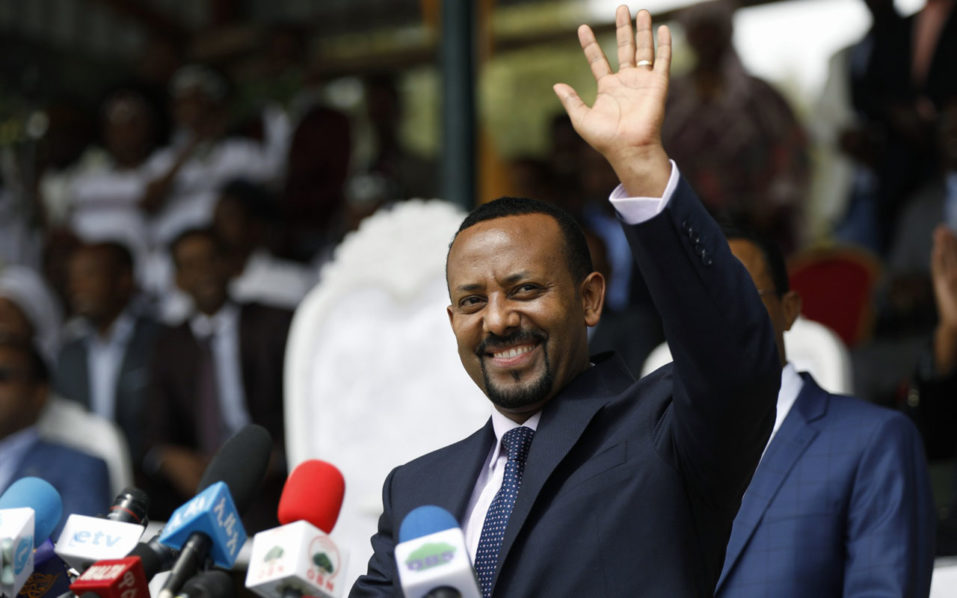
Abiy is the first prime minister in modern Ethiopian history to come from the country’s largest ethnicity the Oromo, which took to the streets in late 2015 protesting the country’s one-party government.
Those protests continued for months, leading to hundreds of deaths and tens of thousands of arrests in an unprecedented challenge to the 27-year rule of the Ethiopian People’s Revolutionary Democratic Front (EPRDF).
Just over a week after his inauguration, Abiy addressed a crowd of thousands gathered in a stadium in Ambo, a town in the Oromo federal region Oromia that is a hotbed of protests and strikes.
“We are now on the path of change and love,” Abiy told a mostly Oromo crowd that police struggled to keep from the bandstand where he was speaking.
“We want to work hand-in-hand with you. What we say and what we do must match,” he added.
Abiy was chosen to succeed Hailemariam Desalegn announced in February that he would step down in a surprise move that analysts believe was partially driven by his inability to quell the anti-government sentiment.
A 10-month state of emergency imposed in October 2016 halted the worst of the protests, which were joined by the Amhara ethnic group, but unrest still broke out sporadically.
Ethiopia is once again under a state of emergency declared after Hailemariam’s resignation, but many people are hopeful Abiy, a 42-year-old former minister of science and technology, can move the EPRDF away from its authoritarian past.
In his speech, Abiy referred to the Qeerroo, young Oromo men who led the at-times violent protests and enforced strikes in Oromia, as the “shield of the Oromo people”.
“I ask you to give us time … to take organised action,” he said.
[ad unit=2]



